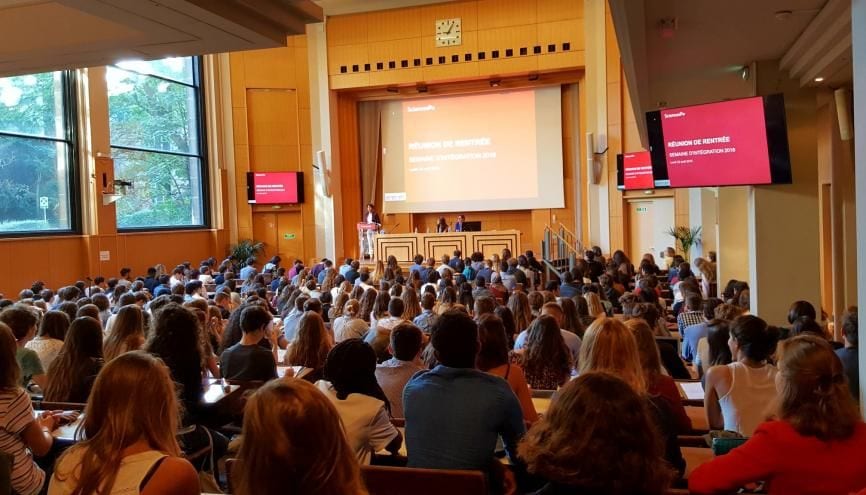
Image: Natacha Lefauconnier
By Diana Glebova and Sam Yacob
Over the past few years, universities, Sciences Po included, have only invited non-inflammatory speakers to campus. Such speakers serve to appease the public and present an ideology that resembles the majoritarian viewpoint on campus. However, such actions limit the foundational purpose of universities, which have historically been the bedrock of intellectual debates. They should challenge and foster debate, as well as bring one’s personal beliefs into question.
Recently the invitation of several controversial personalities, such as Jordan Peterson, have aggravated students from Berkeley to Queen’s. Universities have had to either cancel these events or have racked up expensive security costs to defend the right of these speakers to come on campus. Students on campus, regardless of political ideology, should embrace controversial speakers and view their lectures as an opportunity to strengthen their positions and to hear new ones.
Peterson is an example of an intellectual who holds a conservative ideology, and hence represents a viewpoint outside of the status quo. We should seek professors and intellectuals like him, because they don’t conform to what we read about in our prescribed readings, yet their points of view remain legitimate in academia.
The majority of the Sciences Po student body is not open to the idea of having controversial speakers. A recent Facebook post proves that the student atmosphere towards such a proposition proves to be hostile. Several months ago, a Sciences Po student posted a proposition of inviting Milo Yiannopoulos to campus, and an uproar ensued. It is disheartening that discontent towards such a proposition exists on campus.
Sciences Po generally fares better than American universities in terms of its censorship. It does not have trigger warnings before class and does not censor any particular ideology. The problem, rather, is that Sciences Po does not foster controversial debates. A greater amount of diverging viewpoints being presented by speakers at Sciences Po would be an asset in our ideological development, and the student body should welcome such an opportunity, instead of revolting at the possibility of such an idea. If we fail to address the ideological basis of well-known intellectuals, we fail to address the elephant in the room – that diverging, perhaps controversial ideologies exist, and that they are as valid as our own.
Universities are where you’re supposed to defend your ideas, instead of containing them in a bottle. We need to confront the fact that a vast spectrum of ideologies exists within the walls of Sciences Po, and currently the outliers are are being conformed and constrained to fit the majority.
In the absence of diverging ideologies, we begin to ostracize and be detached from those who do not share our views – we become intolerant to the possibility of someone disagreeing with us and hence, living in a bubble of like minded ideologies. However, we need to acknowledge that their views are legitimate, and that their following shows that other people share their state of mind. We do not necessarily have to adopt their views, or even listen. Yet, it is beneficial to analyze how such individuals came to their ideological standing, and debate their validity or lack thereof. If we continue to completely disregard “the elephant,” we remain blind us to the reality of the world. Consequently, we are shocked to find that populism is on the rise, that Donald Trump got elected, and that there are students at Sciences Po that have controversial standings.
Most of these people who are invited to campuses are invited by student associations, not the campus itself. This raises the question of whether the administration should take it upon itself to invite speakers who stir the pot. Sciences Po has to take the prerogative of taking the responsibility of inviting such speakers as Peterson, because the opportunity would be beneficial to everyone on campus, and the associations may not have enough agency.
Thus, Sciences Po administration should take a greater initiative in inviting controversial speakers, and we should be more open to it.
Other posts that may interest you:
- The Trouble with ‘Ecocide’
- Carbon dioxide removal – hit or miss?
- Local Victories for Turkish Opposition — A Sign of Hope?
- Are France and Japan a Mismatch Made in Heaven?
- A Reflection on Dark Tourism
Discover more from The Sundial Press
Subscribe to get the latest posts sent to your email.





